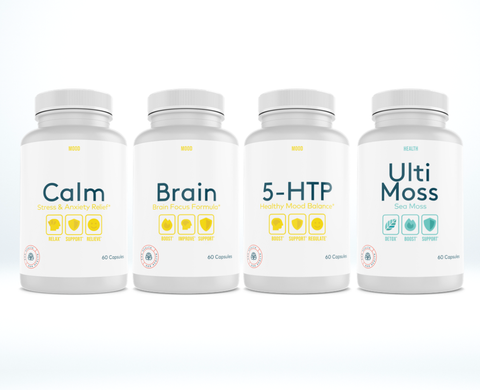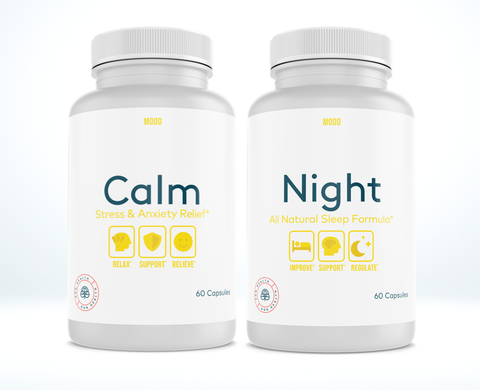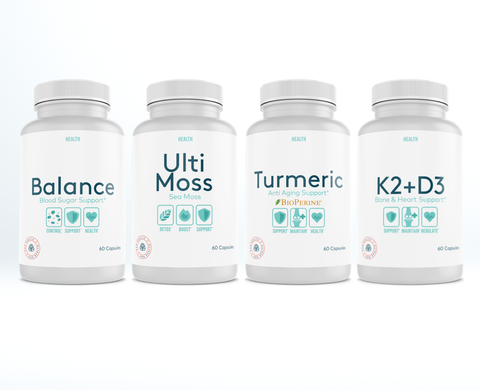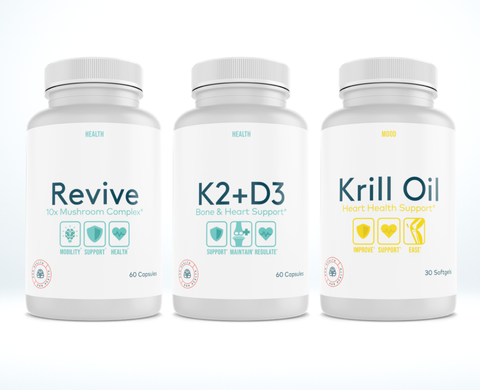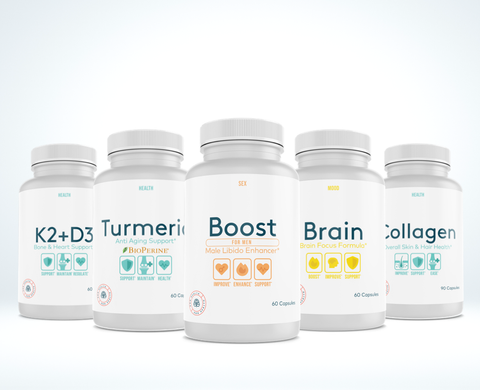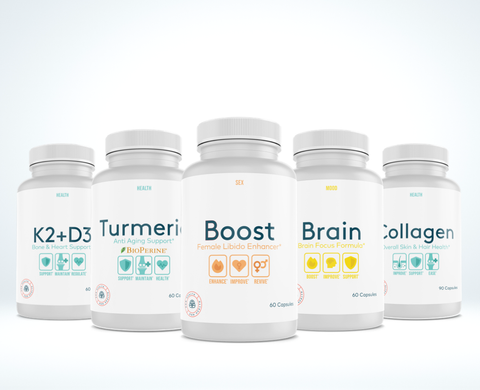Krill Oil For a Healthy Heart
Perhaps you’ve been hearing about krill oil lately, or you’re simply wondering what supplements to take to address heart and stroke health risks.
As you may know, krill oil is an increasingly popular supplement. Many people have gained an interest in it due mainly to its positive effects on cardiovascular health. The components of krill oil can help prevent you from developing conditions that contribute to heart disease and stroke. The oil can also prove useful if you are fighting issues of chronic inflammation.
But what is it, exactly? Well, krill oil is made from krill, a tiny shrimp-like crustacean that, perhaps surprisingly because of its tiny size, is also a main source of food for many whales.
Why, you might be wondering are we turning to tiny ocean creatures for our nutrition when there are much larger animals to eat? And why choose krill oil over, say, fish oil? Well, let’s look at some of the benefits that krill can offer to give you a better idea.
Krill oil provides healthy fats in a way that is more accessible than fish oil.
Krill oil is a great source of omega-3 fatty acids, DHA and EPA specifically, which are especially beneficial. Omega-3s are healthy fats that help to decrease the levels of unhealthy fats, such as triglycerides and bad cholesterol, in your body.
Other oils, like fish oil and flaxseed oil, are also good sources of omega-3 fatty acids, as are certain foods: salmon, walnuts, spirulina, hemp, and chia seeds are a few of the best options. However, some studies show that the omega-3 fatty acids in krill oil, called phospholipids, are particularly easy for the body to absorb into the bloodstream, meaning they are put to use efficiently. Though more research still needs to be done, it appears that krill oil may be one of the most effective ways to increase levels of omega-3s in the bloodstream.
Because these fatty acids counteract bad cholesterol and triglycerides, getting omega-3 levels up in your bloodstream can help prevent the plaque that leads to high blood pressure, heart disease, and stroke.
The omega-3 fatty acids and astaxanthin in krill oil can reduce inflammation.
Studies have not yet uncovered whether there is a causal link between chronic inflammation and heart disease, but research does show that both conditions often go hand in hand. The trigger for many heart attack and stroke cases is the build-up of bad cholesterol-rich plaque in the blood vessels. That build-up can contribute to (and be made worse by) inflammation. So, the good cholesterol in krill oil works to address inflammation caused by plaque buildup.
Additionally, krill oil fights inflammation in other ways as well. In fact, it has another very effective compound in it called astaxanthin that has both anti-inflammatory and antioxidant properties. Many of the studies on krill oils anti-inflammatory effects have been very promising.
Inflammation reduction may improve arthritis and joint pain.
Some of the studies on krill oil and inflammation have focused not just on heart-related issues, but also on arthritis and joint pain. One such study, conducted by Western Ontario and McMaster Universities, found a significant reduction in osteoarthritis pain and stiffness even within just seven to fourteen days of beginning supplement treatment. By comparison, the placebo group actually saw an increase in pain and stiffness.
Another study, done at the Fukushima Orthopedic Clinic, found not only decreases in pain and stiffness but also increases in range of motion. So, you are not just addressing cholesterol issues when you take krill oil, you are actually benefitting many of your body’s systems.
Krill oil may even improve symptoms of PMS.
Because of krill oils beneficial effects on inflammations, it has also been found to have an alleviating effect on cramps and pain associated with menstruation and PMS. The causality behind this helpful effect has yet to be fully understood, but studies has found that women who take krill oil feel less need for pain medication.
As with any supplement, dietary choice, or medication, krill oil can have side effects for your particular body that you would rather do without. Some side effects include digestive issues or belching. More serious side effects generally arise from allergic reactions. So, it is not recommended to take krill oil if you have a shellfish or other seafood allergy.
As always, consult with your physician before starting any supplement regimen as you doctor will know whether there could be any interaction with medications, such as blood thinners, aspirins, beta-blockers, and diuretics, or a need to stop taking a supplement preceding events such as surgery.
At Regen Health, we want to bring you the most cutting edge discoveries in supplement science and the highest quality ingredients that ensure you will get the most out of our products. Visit us at Regen Health for more supplement offers and information.
As you may know, krill oil is an increasingly popular supplement. Many people have gained an interest in it due mainly to its positive effects on cardiovascular health. The components of krill oil can help prevent you from developing conditions that contribute to heart disease and stroke. The oil can also prove useful if you are fighting issues of chronic inflammation.
But what is it, exactly? Well, krill oil is made from krill, a tiny shrimp-like crustacean that, perhaps surprisingly because of its tiny size, is also a main source of food for many whales.
Why, you might be wondering are we turning to tiny ocean creatures for our nutrition when there are much larger animals to eat? And why choose krill oil over, say, fish oil? Well, let’s look at some of the benefits that krill can offer to give you a better idea.
Krill oil provides healthy fats in a way that is more accessible than fish oil.
Krill oil is a great source of omega-3 fatty acids, DHA and EPA specifically, which are especially beneficial. Omega-3s are healthy fats that help to decrease the levels of unhealthy fats, such as triglycerides and bad cholesterol, in your body.
Other oils, like fish oil and flaxseed oil, are also good sources of omega-3 fatty acids, as are certain foods: salmon, walnuts, spirulina, hemp, and chia seeds are a few of the best options. However, some studies show that the omega-3 fatty acids in krill oil, called phospholipids, are particularly easy for the body to absorb into the bloodstream, meaning they are put to use efficiently. Though more research still needs to be done, it appears that krill oil may be one of the most effective ways to increase levels of omega-3s in the bloodstream.
Because these fatty acids counteract bad cholesterol and triglycerides, getting omega-3 levels up in your bloodstream can help prevent the plaque that leads to high blood pressure, heart disease, and stroke.
The omega-3 fatty acids and astaxanthin in krill oil can reduce inflammation.
Studies have not yet uncovered whether there is a causal link between chronic inflammation and heart disease, but research does show that both conditions often go hand in hand. The trigger for many heart attack and stroke cases is the build-up of bad cholesterol-rich plaque in the blood vessels. That build-up can contribute to (and be made worse by) inflammation. So, the good cholesterol in krill oil works to address inflammation caused by plaque buildup.
Additionally, krill oil fights inflammation in other ways as well. In fact, it has another very effective compound in it called astaxanthin that has both anti-inflammatory and antioxidant properties. Many of the studies on krill oils anti-inflammatory effects have been very promising.
Inflammation reduction may improve arthritis and joint pain.
Some of the studies on krill oil and inflammation have focused not just on heart-related issues, but also on arthritis and joint pain. One such study, conducted by Western Ontario and McMaster Universities, found a significant reduction in osteoarthritis pain and stiffness even within just seven to fourteen days of beginning supplement treatment. By comparison, the placebo group actually saw an increase in pain and stiffness.
Another study, done at the Fukushima Orthopedic Clinic, found not only decreases in pain and stiffness but also increases in range of motion. So, you are not just addressing cholesterol issues when you take krill oil, you are actually benefitting many of your body’s systems.
Krill oil may even improve symptoms of PMS.
Because of krill oils beneficial effects on inflammations, it has also been found to have an alleviating effect on cramps and pain associated with menstruation and PMS. The causality behind this helpful effect has yet to be fully understood, but studies has found that women who take krill oil feel less need for pain medication.
As with any supplement, dietary choice, or medication, krill oil can have side effects for your particular body that you would rather do without. Some side effects include digestive issues or belching. More serious side effects generally arise from allergic reactions. So, it is not recommended to take krill oil if you have a shellfish or other seafood allergy.
As always, consult with your physician before starting any supplement regimen as you doctor will know whether there could be any interaction with medications, such as blood thinners, aspirins, beta-blockers, and diuretics, or a need to stop taking a supplement preceding events such as surgery.
At Regen Health, we want to bring you the most cutting edge discoveries in supplement science and the highest quality ingredients that ensure you will get the most out of our products. Visit us at Regen Health for more supplement offers and information.



